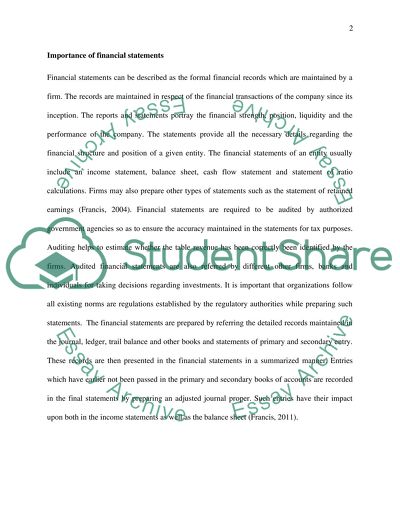Cite this document
(“Financial statements and accounting Essay Example | Topics and Well Written Essays - 1500 words”, n.d.)
Financial statements and accounting Essay Example | Topics and Well Written Essays - 1500 words. Retrieved from https://studentshare.org/finance-accounting/1654119-financial-statements-and-accounting
Financial statements and accounting Essay Example | Topics and Well Written Essays - 1500 words. Retrieved from https://studentshare.org/finance-accounting/1654119-financial-statements-and-accounting
(Financial Statements and Accounting Essay Example | Topics and Well Written Essays - 1500 Words)
Financial Statements and Accounting Essay Example | Topics and Well Written Essays - 1500 Words. https://studentshare.org/finance-accounting/1654119-financial-statements-and-accounting.
Financial Statements and Accounting Essay Example | Topics and Well Written Essays - 1500 Words. https://studentshare.org/finance-accounting/1654119-financial-statements-and-accounting.
“Financial Statements and Accounting Essay Example | Topics and Well Written Essays - 1500 Words”, n.d. https://studentshare.org/finance-accounting/1654119-financial-statements-and-accounting.


